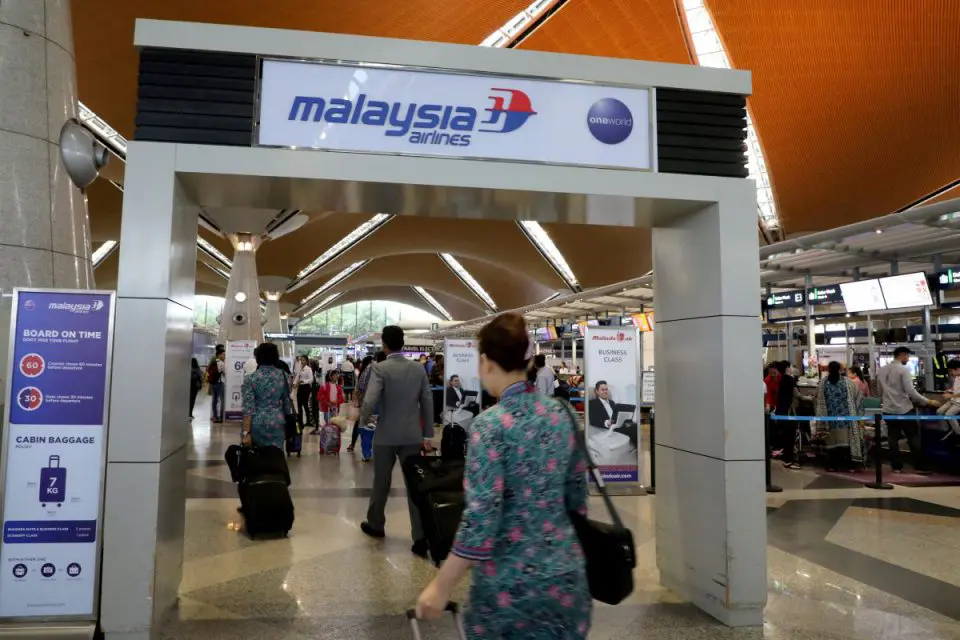KUALA LUMPUR, Oct 3 — Malaysia Airlines Bhd (MAB) has embarked on an urgent restructuring exercise to maintain its relevance and survival after being forced to revise its long-term business plan (LTBP) by the Covid-19 pandemic.
The measure includes reworking the national carrier’s network and fleet plans to enable it to cope with not only the uncertain and volatile aviation landscape, but also likely softer traffic demand for the foreseeable future.
“This plan, which requires a comprehensive restructuring of the MAG business and capital structure, is highly dependent on the individual contributions of all relevant stakeholders in supporting the group to emerge out of this crisis as a well-capitalised and financially healthy airline group,” MAB said.
In a statement, it confirmed having reached out to its lessors, creditors, and key suppliers regarding the restructuring exercise, which is expected to be completed over the next few months.
However, if such an outcome was not possible, the group would have no choice but to take more drastic measures.
When MAB and all its sister companies under the Malaysia Aviation Group (MAG) launched the LTBP in early 2019, the group achieved better overall net income after tax (NIAT) compared to 2018, which is 18 per cent ahead of target whilst group revenue grew by 7.0 per cent year-on-year (YoY).
It said the improved NIAT performance was despite higher fuel prices, increase in forex and impact of MFRS16 (accounting standard for leases).
MAB passenger revenue per available seat-kilometre (RASK) increased by 3.0 per cent, and yield increased by 5.0 per cent on the back of a 5.0 per cent increase in available seat kilometre (ASK) YoY.
The airline achieved record-breaking RASK results in second half of 2019, with the highest RASK ever recorded in three years.
MAB said it also made significant improvements operationally, exceeding its on-time performance target of 80 per cent to achieve 83 per cent, the best ever since 2015, while mishandled baggage had steadily improved to 5.6 bags per 1,000 passengers, the best ever in the last five years.
Its customer service index improved to 78 per cent, the best in the last four years, while net promoter score climbed to +14 compared to -22 in the last three years.
The group was set to continue the good momentum in 2020 but Covid-19 caused an unprecedented lockdown across the globe, forcing airlines to halt operations and ground almost all their fleet for most of March to June this year.
At the height of the Covid-19 crisis, MAG continued to serve the nation and customers by maintaining some domestic and minimal international connectivity, mostly to facilitate essential movements, mounting of rescue and repatriation flights, and ensuring global supply chains were maintained via its cargo operations.
The negative financial impact prompted the group to cut costs and conserve cash, including introducing extensive salary cuts for the entire management team and pilots, introducing no-pay leave, seeking payment deferrals, renegotiating contracts, amongst others, in order to survive and protect as many jobs as possible.
MAB expects the pandemic, showing little sign of improvement; resurgence in some markets without visibility of a vaccine that needs to be widely distributed; and tight border restrictions remaining in place for key markets, to hamper international leisure and business travel demand in the next couple of years.
“As a national carrier, it is MAG’s intention to ensure some level of continuous connectivity for its passengers; and to minimise impact on the livelihood of direct and indirect workforce and industries dependent on its operations,” it said.
Being an economic enabler to the country, it said MAG was cognisant that any action taken would have a greater impact to the broader aviation industry and to the nation.
“Hence it is committed to ensure that its restructuring exercise is duly implemented in a fair manner through any form of mechanism that is appropriate,” it added.
Meanwhile, Reuters reported that MAG would likely not be able to service its debt after November unless the group received more capital from sole owner Khazanah Nasional Bhd.
Based on a letter sent to lessors last month, MAG said the restructuring exercise was undertaken as the group was experiencing “an average monthly operating cash burn of US$84 million (RM350 million)”.
As of Aug 31, MAG only had US$88 million (RM366 million) in liquidity and an additional US$139 million (RM578 million) available from Khazanah, the report said.
It also said Khazanah was supportive of MAB’s restructuring efforts but evaluation options on how to maintain connectivity for Malaysia would be needed if the restructuring plan was unsuccessful.
— Bernama





